When Jane Karas ’80 finished her Ph.D. in public policy at Brandeis University in 1986, she was 27 years old, untethered, and figured she owed herself a great gift. That gift was spending the summer on a dude ranch in Montana, where guests exchange work for the cost of their stay. Her work? Wrangling cattle. The ranch was at the base of a 40-mile stretch of the Rocky Mountains. Along with moving cattle from one pasture to another, she would often wake before dawn to traverse acres of prairie in search of horses that had roamed away in the night. She’d find a way to bridle the animal and then jump on it bareback and ride back to the ranch.
A friend once asked her, “How could you like Montana? There’s nothing there.” Some might agree, given that the state is the fourth largest in America, with a population that only recently tipped over 1 million. But for most people who relocate to the state, that’s also part of the point. Jane loved Montana’s physicality, with its translucent lakes, mammoth mountains, and the way you can see for miles in every direction. After a couple years of shuttling between New York City and Montana, she bought a used Nissan Pathfinder and packed it full of her belongings. In the winter of 1988, she headed west again, this time for good.
Jane knew she wanted to be in Montana and worked hard to stay there. She volunteered, taught business and sociology classes at Montana State University, wrote grants for the Displaced Homemaker Society, and spent a few years with the university’s board of regents. In 1999, when the position of vice president for Flathead Valley Community College (FVCC) opened up, her assorted experiences made her a perfect fit. Two years later, she became president, a seat she’s held for 15 years.
FVCC isn’t your average community college. As one of only a handful in the state, it serves nearly 100,000 residents over a region that is larger than the state of Massachusetts. Alongside programs in biotechnology and wildlife management, students can get a commercial driver’s license to become a truck driver, or earn certificates in heavy equipment operating and welding. They can also learn the science of brewing craft beer. In other words, it’s the kind of place where having “wrangler” on your résumé is a major bonus.
The pluck Jane’s demonstrated throughout her career is never more evident than in her role as president. “I’ve said to people who work here, ‘I’m willing to jump off cliffs as long as I know I can at least pick myself up and put the pieces back together,’” she says. Here’s one example: When a generous donor offered to give $4 million to fund a new nursing and health education center—the largest gift in the history of the college—if Jane could raise $1 million, she shook his hand and calmly said, “Oh yes, we’ll do that, no problem.” Never mind that it was during the recession. She raised $1.5 million in nine months.
With the hint of a smile, Jane says that running a college is more similar to wrangling cattle than you might think. “Just when you think you have the cow headed in the right direction, it zigs or zags, jumps over a log or just plain stops and refuses to move,” she says. Leading requires patience, creativity, and the ability to empathize with the other’s frame of mind—whether it’s a person or cow.

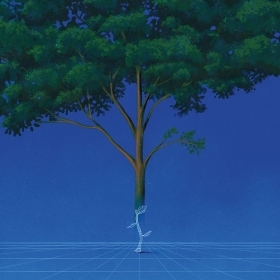
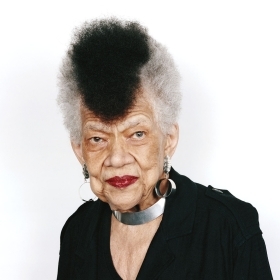
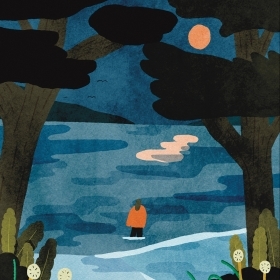
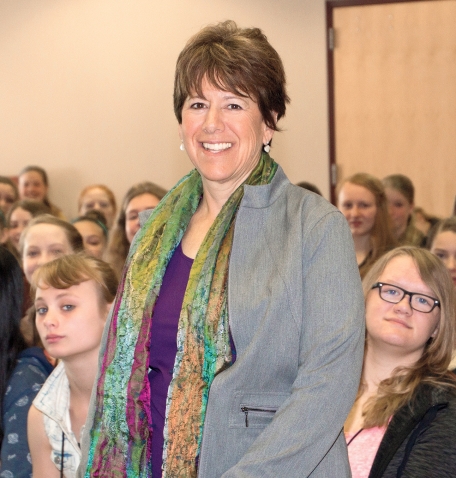
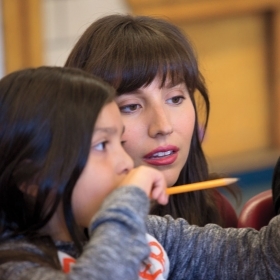
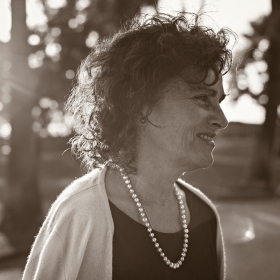
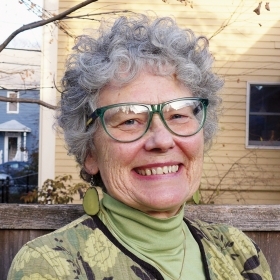
We ask that those who engage in Wellesley magazine's online community act with honesty, integrity, and respect. (Remember the honor code, alums?) We reserve the right to remove comments by impersonators or comments that are not civil and relevant to the subject at hand. By posting here, you are permitting Wellesley magazine to edit and republish your comment in all media. Please remember that all posts are public.